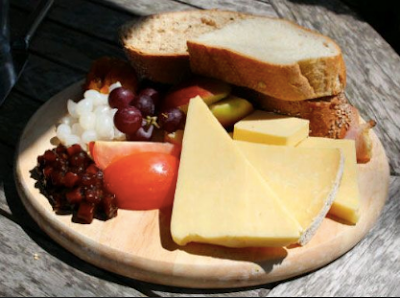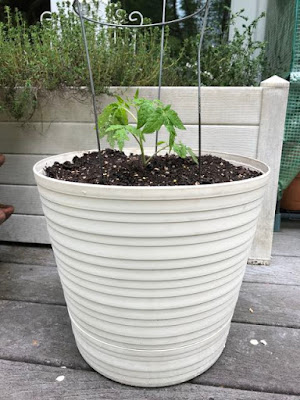I don't know about you, but when I am first waking up for the morning, my thoughts can be kind of random. Yesterday morning I was thinking about the proportion of our money spent in different categories and how that must relate to our values. Following that thinking, the areas that we spend the most in must be the areas that are the most important to us.
There's a "however" to this. The expense for a couple of the most expensive categories for our budget is largely out of our control. These items are fixed in price by bodies greater than our family. Aside from this, I still think there is some truth to my morning musings. I'll list out our top spending categories in order from greatest monthly expense to least, then discuss how the order is a reflection of our families values and choices.
Taxes, that fee that we pay to government so that we can be governed -- far and away the winner for most expensive category for our household. When I combine income, property, and sales taxes, our family pays a larger share of our income in this category than any other.
Healthcare insurance -- again, another area where we have little control over the cost. We purchase our insurance through my husband's employer. We could buy insurance for myself separately from my husband's and choose a low up-front, but high deductible plan. But we choose to have the same plan for both of us, mostly because if I knew I had a large deductible, I would simply not go to the doctor. My access to medical care would be psychologically limited, whereas my husband's lower deductible plan would allow him to feel free to get medical care for himself.
Charitable giving
The next two categories are tied for 4th place.
Car insurance and food
We live in an area with high car insurance rates, plus we have 4 drivers. If my husband and I were paying for the entire insurance on 4 drivers, car insurance would beat food in cost. However, our daughters pay the share of additional insurance to have them on our policy.
We have more control over the cost of food for our household than any of the previous categories. We keep costs down by growing our produce, shopping around for price, buying basic food items and cooking from scratch, eating at home, and having simple tastes.
Heat -- this cost is dependent on climate, home size, quality of insulation and heating equipment, and personal tolerance for cold or heat. I actually like a cooler house in winter. I like to sleep in cool air, and I find I'm more active during the day if the house is slightly on the cool side. We don't have AC, so I don't have to factor in cost to cool the house in summer.
Water -- despite living in an area known for rainfall, our cost of water is somewhat high, here. We do what we can to keep our water bill down, such as using rain barrels for some of our garden watering and taking shorter showers. Four adults simply use a lot of water. And we're no longer willing to take extreme measures to reduce this bill. Water use is an area that we indulge.
Car repair and maintenance -- with an older car comes higher repair bills.
Internet service -- as we've seen this past year, modern lives have evolved to the point that having good internet service can be a requirement to earn a living. My husband has been working entirely online for the last 14 months, both daughters have needed internet service for their careers, one substitute-teaches online through Zoom, and I use the internet to earn a little money, too. We also just prefer high-speed internet and that costs more.
Electricity -- years ago, we had super low electricity usage. We own more electrically-powered gadgets and appliances now, so this expense has risen in our list.
Items for the home -- we buy used, acquire for free, or shop discount stores/sales/coupons. We also keep our "stuff" in good condition, doing as much maintenance ourselves as we can. Every once in a while we buy a new appliance or electronic. It's these appliances or electronics that increase our average annual spending on items for the home. Last year's purchases included a new desktop computer and a new freezer. This year we bought a power washer.
Vacations and fun outings
Prescriptions, supplements, co-pays for medical/dental
Cell phone service -- my daughters pay for their own service. When my kids were in university, we bought prepaid text/voice only service. The main intent was that they'd be able to keep in touch with us. If they had wanted smartphone features, that would have been something they'd have to fork over the dough for.
Gasoline for our car -- my daughters use the car more than my husband or I, as sub teaching is often not compatible with taking the city bus. They also drive for their other career needs (classes, internships, auditions, filming). We've come up with a system that we feel is fair. We rotate who fills the gas tank -- daughter one, daughter two, then husband and self jointly.
Landline phone service -- we have a cheap basic phone plan for the home phone that is bundled with the internet. I don't know at what point we'll drop the landline. For the time being, it's the only number that one aging member of my extended family will call to talk with us. I want to leave that number intact to accommodate this member's comfort.
*see below
Garbage collection -- We used to opt for their cheapest service, once per month pick-up of a small can. We upgraded our service to once per week of their smallest can. We've been using the additional service for about 2 years, primarily to get rid of all of the junk that we acquired over the past 26 years that is either not recyclable nor fit for giveaway or resale. When we have cleaned out the attic and garage of all of this junk/garbage, we'll go back to once per month service.
Non-food household supplies, like paper products and cleaning supplies
Clothing -- I used to love buying clothes. I also used to giveaway my clothing on a regular basis. I now wear items until they are too far gone. And I'm careful to only wear nice clothes for as long as needed and change into comfy, less-nice clothes for when just around the house.
* in a non-pandemic year, I guess we spend a bit more on restaurant dining per month than garbage collection but less than landline phone service. We haven't eaten out since Feb. 2020. I'm not sure how our dining out will look later this year. We seem to be enjoying eating at home all of the time.
The order of expenses has changed with time and as our income level has risen. When we were younger (and poorer), housing was our largest expense each month. Yet we didn't have a mortgage. We were renting a small 2-bedroom unit in a triplex, and spending 3 times the amount for our housing than for food at that time. When we bought a house and took on a mortgage, we spent about 6 times for our mortgage compared to food. An interesting point, though, is that when we were younger and poorer, we not only spent a larger share of our income on dining out than we do now, but we ate out with more frequency then than we do now. We also bought more new clothing back then. My thought is that feeling "poor" led to us treating ourselves to meals out and buying knick-knacks or clothing.
At this stage in our lives, medical access and care is very important to us. So is the luxury of long, hot baths, having a well-watered garden, fast internet, and not worrying about the lowest possible electricity bill. We do try to turn off lights when not in the room. But I don't chase family members down just so I can lecture them about turning off those lights. My younger self did plenty of lecturing over wasting money. But we needed to always be vigilant, then. There wasn't much wiggle room at all in our budget.
Another thought about spending less on items for the home or clothing: once you've acquired what you need to run and enjoy a home or buy a set of nice clothing, you only need to replace items when the old ones wear out, you outgrow them, or technology or style outdates them. So, there's less need to buy something like furniture at this stage in life than there was 20 years ago for our family.
One thing to note about our family's not spending a lot of our income on food: it isn't that we don't value good food. To the contrary, we do value what we eat, and that is why we prefer to make and grow our own food as much as possible. We don't like the taste, texture, or knowledge of additives or preservatives found in or on many commercially prepared foods. We appreciate good, homemade meals made simply with fresh ingredients.
Yes, I was thinking almost all of this in those groggy moments of yesterday morning. It was threshold consciousness thinking -- not always in words, but in ideas. It was interesting to me to write this all down and analyze my family's spending priorities.
Do you ever think about your spending values and how they play out in your actual spending?







































